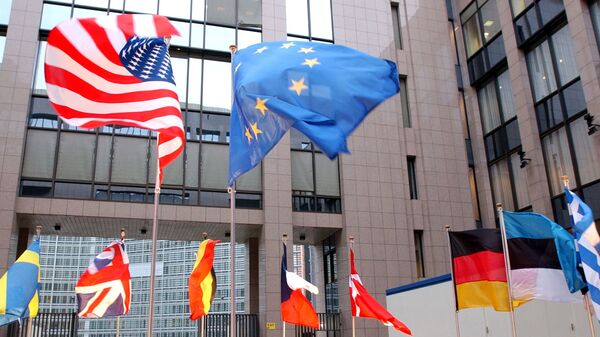First of all, it concerns serious gaps in the data management and the unwillingness of certain EU countries to cooperate with each other.
According to the newspaper, Belgian and Turkish authorities received information on terror threats from intelligence services of the "third" countries. Thus, they had been aware of the possibility of suicide bombings and could have prevented them, the article said.
The report also stressed that some countries, and Greece in particular, have problems with the border control and the process of fingerprinting.
"In some refugee reception centers such security controls have not been implemented," the report revealed.
Following the attacks, analysts called for establishing a connection between the databases of various intelligence agencies which contain information on suspected terrorists, including FRONTEX, Europol and Interpol. According to the report, over 5,000 Europeans were said to have joined Daesh in Syria and Iraq, but the Europol database, for instance, contains only 2,786 names.
Earlier this week two explosions shook the Brussels Zaventem International airport and the Maelbeek metro station, killing at least 31 people and injuring over 300. Daesh claimed responsibility for the attacks.



